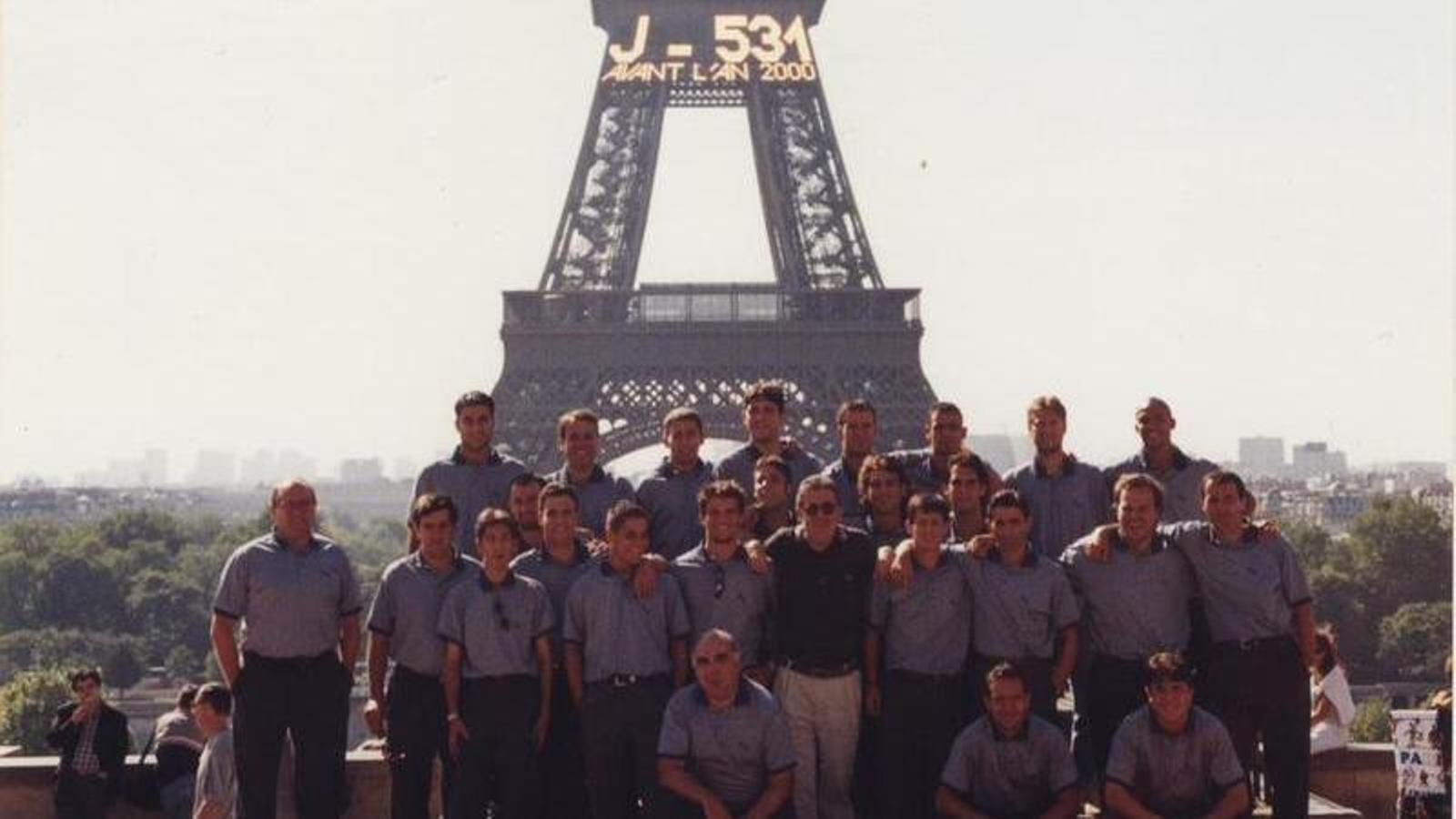The late summer tournament that changed Espanyol's history
The 1998 Intertoto Cup laid the groundwork for the blue and white club to win a title 60 years later.


BarcelonaEvery year at the end of July Espanyol remembers its debut in the Intertoto Cup, a dull and extinct summer tournament organized by UEFA that holds a privileged place in the collective imagination of the "perico" (Spanish footballers) and gives its name to the best crop of players to emerge from the Blanquiazul youth academy. Clubs that hadn't qualified for Europe via the La Liga competed, and the champions received a ticket to the UEFA Cup. In 1998, the Spanish representatives were Valencia and Español. Marcelo Bielsa, who had joined the Catalan club that summer, declined to participate; and to avoid a fine, the club entrusted Paco Flores, a club man, to participate in the Intertoto with players returning from loan, those discarded from the first team, and players from the reserve team.
"They concentrated us in Montanyà when we still had a few days of the season left play-off of promotion to Second A. During the week we were stage with Flores and on the weekend we played with Espanyol B", Pedro Nieto, one of the leaders of the perico reserve team and of the team of circumstances, called the Fifth of the Intertoto, which the white and blue club presented in Europe, tells ARA. Among others, he was accompanied by Argensó, Capdevila, Soldevilla, De Luc who, like the rest of his teammates, was left without a vacation: "When they called us up I thought: "What a bummer." I had just taken my last university exams and had planned an end-of-degree trip with my classmates. I was left without going."
"What's this Intertoto thing?"
"What's this Intertoto thing?" we used to say to each other. We didn't think it would have any impact. Many didn't even want to play in it," Nieto reveals with a laugh, recalling the lack of resources in particular: "Shortly before the debut, they gave us a polo shirt and each of us brought our jeans. I didn't have any. We flew to Vienna and took a four-hour bus ride to the hotel. It was all very rudimentary."
"Some had never left Spain. They were a group of friends from a Second Division B team who found themselves playing in a European competition," adds journalist Jordi Luengo, author of the book The Quinta de la Intertoto, the dream that came true, which recounts that adventure across the Old Continent, which began with a 5-3 win in the Czech Republic. "We didn't really know where we were... and it turned out we were winning 1-3 at halftime. But they came back and we came back thinking we were saying goodbye to Europe," notes Morales. "The return leg was played in Sabadell. Since it was vacation time and Espanyol fielded a lackluster team, the club didn't even open Montjuïc," Luengo adds. Álex Fernández and Tamudo, scorers for Nova Creu Alta, secured another tie.
"Against Auxerre, who had recently won the French league, we started to believe it. We drew there and eliminated them at home. And the fans got excited," Nieto recalls. So much so that the semifinals were played at the Estadi Olímpic. "Paco Flores was allowed to call up first-team players, but he said no. He was completely behind us," he added.
Three goals from the Louse López put an end to the dream. "Espanyol had players who hadn't even made their debut; and Valencia had Cañizares, Carboni, Mendieta, and Angulo," Luengo compares. In fact, that team was the seed of Cúper's Valencia, which reached two consecutive European Cup finals, in 2000 and 2001. "I think if we hadn't faced such a strong opponent, we would have reached the final and won it," says Morales.
A historic turning point
Despite the elimination, the European trip left an indelible mark. "It was a brutal showcase and relaunched our careers," admits Morales. "That team paved the way for many kids," says Nieto. "The Intertoto changes everything," Luengo concludes.
Two years later, Espanyol won the Copa del Rey against Atlético de Madrid, with goals from Tamudo and Sergio. Soldevilla and De Lucas were also there, and the coach was Paco Flores. "All of them formed the basis of the coincidence column, due to a decision by Bielsa, and which ended up lifting a title 60 years later. In addition, the final was at Mestalla, where they said goodbye to the Intertoto," Luengo concludes about the epilogue of the summer tournament that changed Espanyol's history.
